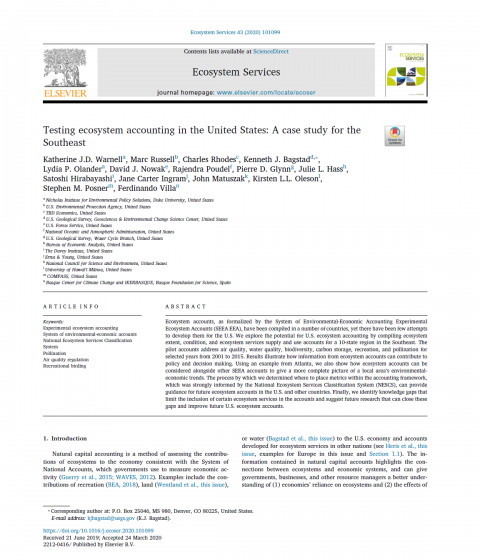Testing ecosystem accounting in the United States: A case study for the Southeast

Document Summary:
Ecosystem accounts, as formalized by the System of Environmental-Economic Accounting Experimental
Ecosystem Accounts (SEEA EEA), have been compiled in a number of countries, yet there have been few attempts to develop them for the U.S. We explore the potential for U.S. ecosystem accounting by compiling ecosystem extent, condition, and ecosystem services supply and use accounts for a 10-state region in the Southeast. The pilot accounts address air quality, water quality, biodiversity, carbon storage, recreation, and pollination for selected years from 2001 to 2015. Results illustrate how information from ecosystem accounts can contribute to policy and decision making. Using an example from Atlanta, we also show how ecosystem accounts can be considered alongside other SEEA accounts to give a more complete picture of a local area’s environmental-economic trends. The process by which we determined where to place metrics within the accounting framework, which was strongly informed by the National Ecosystem Services Classification System (NESCS), can provide guidance for future ecosystem accounts in the U.S. and other countries. Finally, we identify knowledge gaps that limit the inclusion of certain ecosystem services in the accounts and suggest future research that can close these gaps and improve future U.S. ecosystem accounts.
Link to an External Document:
